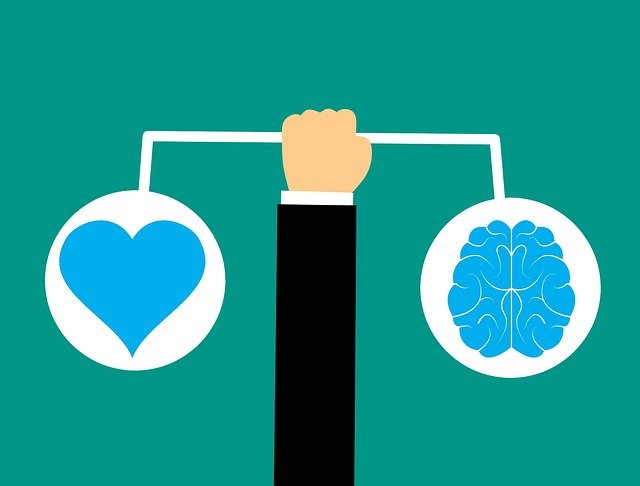¡El corazón piensa y recuerda! || The heart thinks and remembers! [Esp - Eng]
¿Quién tomaría la decisión de que El Palito, estado Nueva Esparta fuera el post con el que participaría en el concurso Paisajes Venezolanos en #Hive? ¿Sería mi cerebro o mi corazón?
Esta pregunta surgió en mi mente, cuando comencé a desarrollar el contenido de mi nueva publicación: El corazón piensa y recuerda y me llamó la atención lo emocionada que estuve desde el mismo momento en que supe el tema del mencionado concurso, luego el inmenso disfrute con la gama de opciones que pasaron por mi mente y finalmente la decisión de hacerlo basado en mis recuerdos de la infancia. Para ese momento ya yo sabía que todo aquello estaba saliendo de mi corazón, pero ahora me hacía la pregunta y ¿quién tomo la decisión?
Resulta que el corazón no solo piensa y recuerda, sino que también siente e interviene en la toma de decisiones y como si esto fuera poco, lo hace por su propia cuenta, es decir el corazón tiene su propia inteligencia que actúa de forma independiente.

De verdad que la naturaleza no deja de sorprenderme, jamás imaginé que en nuestro corazón pudiéramos tener un almacén de recuerdos y mucho menos que estos fueran independientes de los que están en nuestra cabeza. Por esa razón ahora cuando digo “esto lo llevo en el corazón”, lo digo porque lo siento, lo percibo y estoy convencida de que es así.
Hasta hace poco tiempo, creí que el cerebro era el órgano director de todas las funciones del cuerpo y que el corazón sólo tenía la función de limpiar y bombear la sangre que recorre nuestro cuerpo, tal y como lo aprendí en la escuela y como todavía aparece por ahí en muchos textos. Creía eso a pesar de que instintivamente sabía que en mi corazón pasaban otras cosas, como cuando te asustas y sientes como una presión en el pecho, o cuando te sorprendes y sientes que tu corazón salta, cuando te alegras y sientes que tu pecho también se ríe. Todas estas cosas nos pasan y las invisibilizamos o no las tomamos en cuenta, porque en la mayoría de los casos no le damos importancia o nos conformamos con lo que otros nos dicen, sin reflexionar acerca de ello.
Ahora sé que la neurociencia ha descubierto que el corazón, además de su importante función circulatoria, cuenta con un minucioso y sofisticado sistema nervioso que tiene aproximadamente cuarenta mil neuronas y actualmente es conocido como el cerebro del corazón. Este sistema además de sentir, memorizar, procesar información y tomar decisiones, también produce y segrega algunas hormonas y neurotransmisores, como por ejemplo la oxitocina, reconocida como la hormona del amor o de los lazos afectivos. Por cierto, esto último nos habla de que nuestro corazón también tiene funciones endocrinas.
El cerebro y el corazón son como dos amigos inseparables que permanecen incesantemente en un constante diálogo bidireccional, afectándose mutuamente. Una de las maneras como el corazón se comunica con el cerebro es a través de su lenguaje de latidos, las ondas cerebrales permanentemente se sincronizan con los latidos del corazón.

De acuerdo con información suministrada por la neurocientífica Dra. Nazareth Castellanos el corazón emite sus latidos con una variabilidad entre un latido y el siguiente, a veces el disparo del latido se adelanta y otras se atrasa, nunca es igual. Este mecanismo es lo que se conoce como la variabilidad cardíaca, esta variabilidad no tiene nada que ver con el pulso cardíaco, es decir nada que ver con el número de latidos por minutos, eso es otra cosa. En el momento que ocurre la variabilidad es cuando el corazón se comunica con el cerebro. El corazón y el cerebro emiten campos electromagnéticos y la actividad de las neuronas cerebrales cambia cada vez que el corazón emite un latido.
Esta variabilidad se produce de acuerdo con los cambios que vamos teniendo, cuando pensamos, sentimos y nos emocionamos. Bueno, les cuento, Nazareth nos dice que se ha comprobado científicamente que a mayor variabilidad cardíaca aumenta nuestra memoria, tenemos mayor capacidad cognitiva, aumenta la capacidad de atención, aumenta la fluidez verbal y cuando nos alegramos es cuando hay mayor variabilidad cardiaca
Nuestro cerebro de vez en cuando deja de percibir y eso es lo que se conoce como "parpadeo atencional", percibimos lo que está pasando afuera sólo cuando el cerebro y el corazón se comunican.
El corazón se comunica con diferentes estructuras del cerebro, sobre todo a las partes emocionales y principalmente con la amígdala. Interpretamos la realidad a través de las emociones cuando el corazón le comunica al cerebro las emociones que llevamos dentro. También conecta con las partes frontales del cerebro, involucradas en el procesamiento más racional, como la planificación de nuestras estrategias y la regulación de nuestro comportamiento. Por otra parte, también se ha visto que cuanto más se comunica nuestro corazón con nuestro cerebro más pensamos en nosotros mismos.
Hasta aquí llegaré hoy con este tema, porque como diría uno de mis hijos, esto apenas es la punta del iceberg en lo que se refiere al fascinante mundo del corazón.

Who would make the decision that El Palito, Nueva Esparta state would be the post with which I would participate in the Venezuelan Landscapes contest on #Hive? Would it be my brain or my heart?
This question arose in my mind, when I started to develop the content of my new post: The heart thinks and remembers and I was struck by how excited I was from the very moment I knew the theme of the aforementioned contest, then the immense enjoyment with the range of options that went through my mind and finally the decision to do it based on my childhood memories. By that time I knew that it was all coming from my heart, but now I asked myself the question, who made the decision?
It turns out that the heart not only thinks and remembers, but it also feels and intervenes in the decision making process and as if that were not enough, it does it on its own, that is to say, the heart has its own intelligence that acts independently.

Truly, nature never ceases to amaze me, I never imagined that in our heart we could have a store of memories and much less that these were independent of those in our head. That is why now when I say "this is in my heart", I say it because I feel it, I perceive it and I am convinced that it is so.
Until recently, I believed that the brain was the directing organ of all the functions of the body and that the heart only had the function of cleaning and pumping the blood that runs through our body, just as I learned in school and as it still appears out there in many texts. I believed that even though I instinctively knew that other things happened in my heart, like when you get scared and feel a pressure in your chest, or when you are surprised and feel your heart jump, or when you are happy and feel your chest laugh too. All these things happen to us and we make them invisible or we do not take them into account, because in most cases we do not give importance to them or we are satisfied with what others tell us, without reflecting about it.
Now I know that neuroscience has discovered that the heart, in addition to its important circulatory function, has a meticulous and sophisticated nervous system that has approximately forty thousand neurons and is currently known as the brain of the heart. This system besides feeling, memorizing, processing information and making decisions, also produces and secretes some hormones and neurotransmitters such as oxytocin, recognized as the hormone of love or bonding. By the way, the latter tells us that our heart also has endocrine functions.
The brain and the heart are like two inseparable friends that are incessantly in a constant two-way dialogue, affecting each other. One of the ways in which the heart communicates with the brain is through its heartbeat language, the brain waves permanently synchronized with the heartbeat.

According to information provided by the neuroscientist Dr. Nazareth Castellanos the heart emits its beats with a variability between one beat and the next, sometimes the heartbeat is faster and sometimes it is delayed, it is never the same. This mechanism is what is known as cardiac variability, this variability has nothing to do with the cardiac pulse, i.e. nothing to do with the number of beats per minute, that is something else. At the moment that the variability occurs is when the heart communicates with the brain. The heart and the brain emit electromagnetic fields and the activity of the brain neurons changes every time the heart emits a beat.
This variability is produced according to the changes we are having, when we think, feel and get excited. Well, I tell you, Nazareth tells us that it has been scientifically proven that the more cardiac variability increases our memory, we have greater cognitive capacity, increases attention span, increases verbal fluency and when we are happy is when there is greater cardiac variability.
Our brain from time to time stops perceiving and that is what is known as "attentional blinking", we perceive what is happening outside only when the brain and the heart communicate.
The heart communicates with different structures of the brain, especially the emotional parts and mainly with the amygdala, we interpret reality through emotions when the heart communicates to the brain the emotions we carry inside. It also connects with the frontal parts of the brain, involved in more rational processing, such as the planning of our strategies and the regulation of our behavior. On the other hand, it has also been shown that the more our heart communicates with our brain the more we think about ourselves.
This is as far as I will go with this topic today, because as one of my sons would say, this is just the tip of the iceberg when it comes to the fascinating world of the heart.
Translated with www.DeepL.com/Translator (free version)